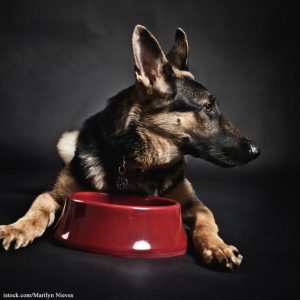Pets aren’t the only ones who can get sick from tainted pet food. Humans who handle the food can get sick too. The Centers for Disease Control and Prevention (CDC) has some tips to help keep people safe when they are feeding their pets.
 Symptoms of a Salmonella infection can cause diarrhea, vomiting and fever in pets and humans. If your pet exhibits these symptoms, you can reduce your risk of becoming ill by washing your hands after petting him. Pick up dog waste promptly, seal it in a plastic bag and dispose of it in a closed container. For cats, scoop litter daily and discard waste into a tightly sealed plastic bag.
Symptoms of a Salmonella infection can cause diarrhea, vomiting and fever in pets and humans. If your pet exhibits these symptoms, you can reduce your risk of becoming ill by washing your hands after petting him. Pick up dog waste promptly, seal it in a plastic bag and dispose of it in a closed container. For cats, scoop litter daily and discard waste into a tightly sealed plastic bag.
To reduce your pet’s risk of contracting food poisoning, don’t feed him raw food such as raw dog foods, uncooked meat or poultry or raw eggs. Don’t buy cans of pet food that are dented, or bags that are torn.
To reduce your risk of becoming sick, store pet food away from people food. Don’t use your pet’s food bowl as a scoop for his food, use a clean, dedicated spoon, cup or scoop instead.
After feeding your pet a meal or a snack, wash your hands for 20 seconds with warm, soapy water, long enough to sing Happy Birthday, twice. Because their immune systems are still developing, young children are especially at risk for bacterial infections and children under five should not be allowed to handle pet food or pet treats.
When it’s time to wash your pet’s food bowls, it’s best not to do so in the kitchen sink or bathtub. If there isn’t an alternative, clean and disinfect the sink or tub after you have washed the bowls.





If raw food has been pasteurizied then it would no longer be raw as pasteurization refers to food being heated to a high temperature for a specific period of time. Veterinary nutritionists do not recommend raw foods because of the safety issue and because there is no benefit to the pet over feeding kibble. In fac,t most pet food companies have done so much research on their food it is far superior to a raw diet.
Your recommendation to avoid commercial raw pet foods is not based in the facts. There have been more recalls of dry kibble pet food for salmonella than commercially available raw diets. Many commercially available raw diets are now pasteurized and are pathogen free.
It’s not our recommendation; that comes from the CDC.